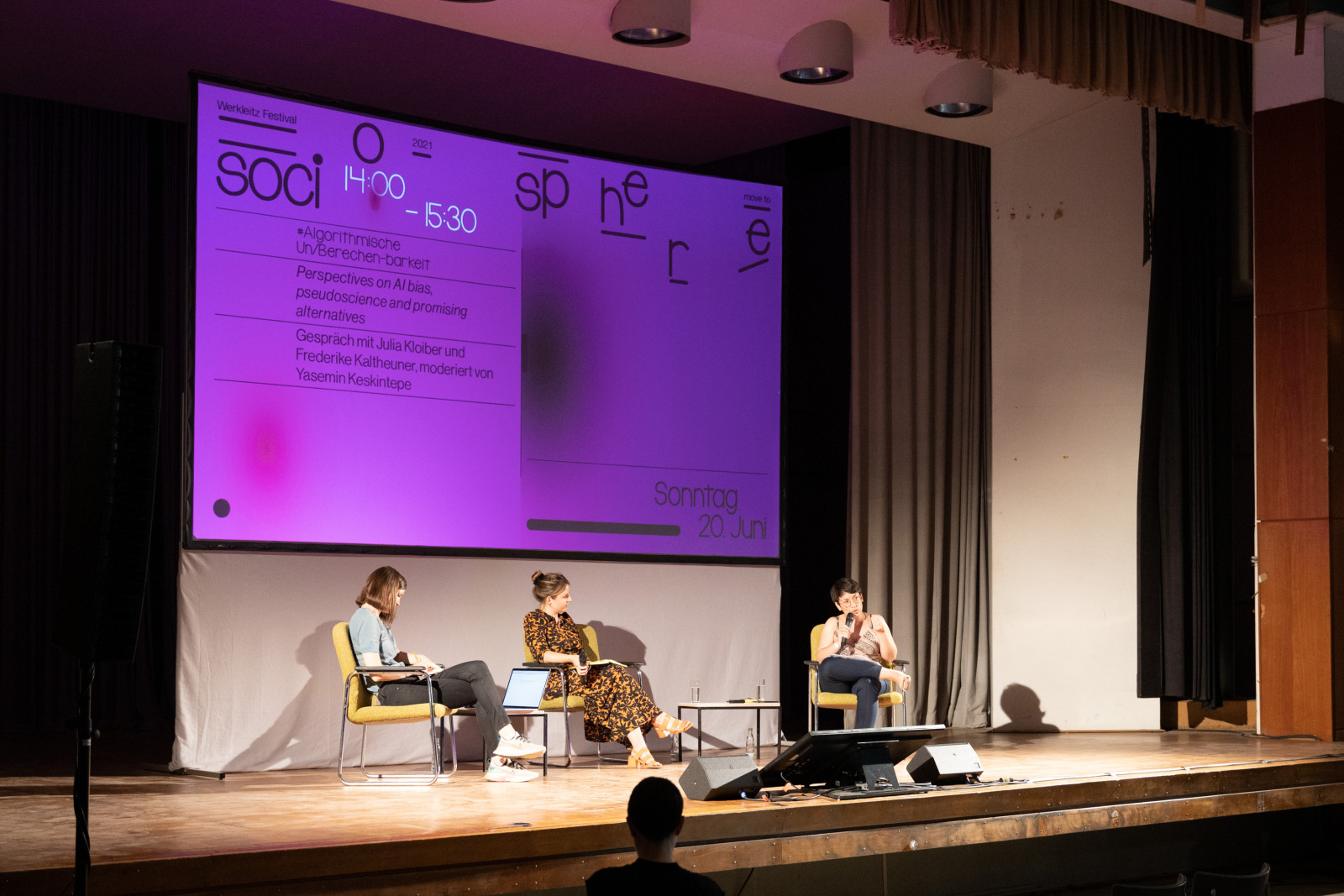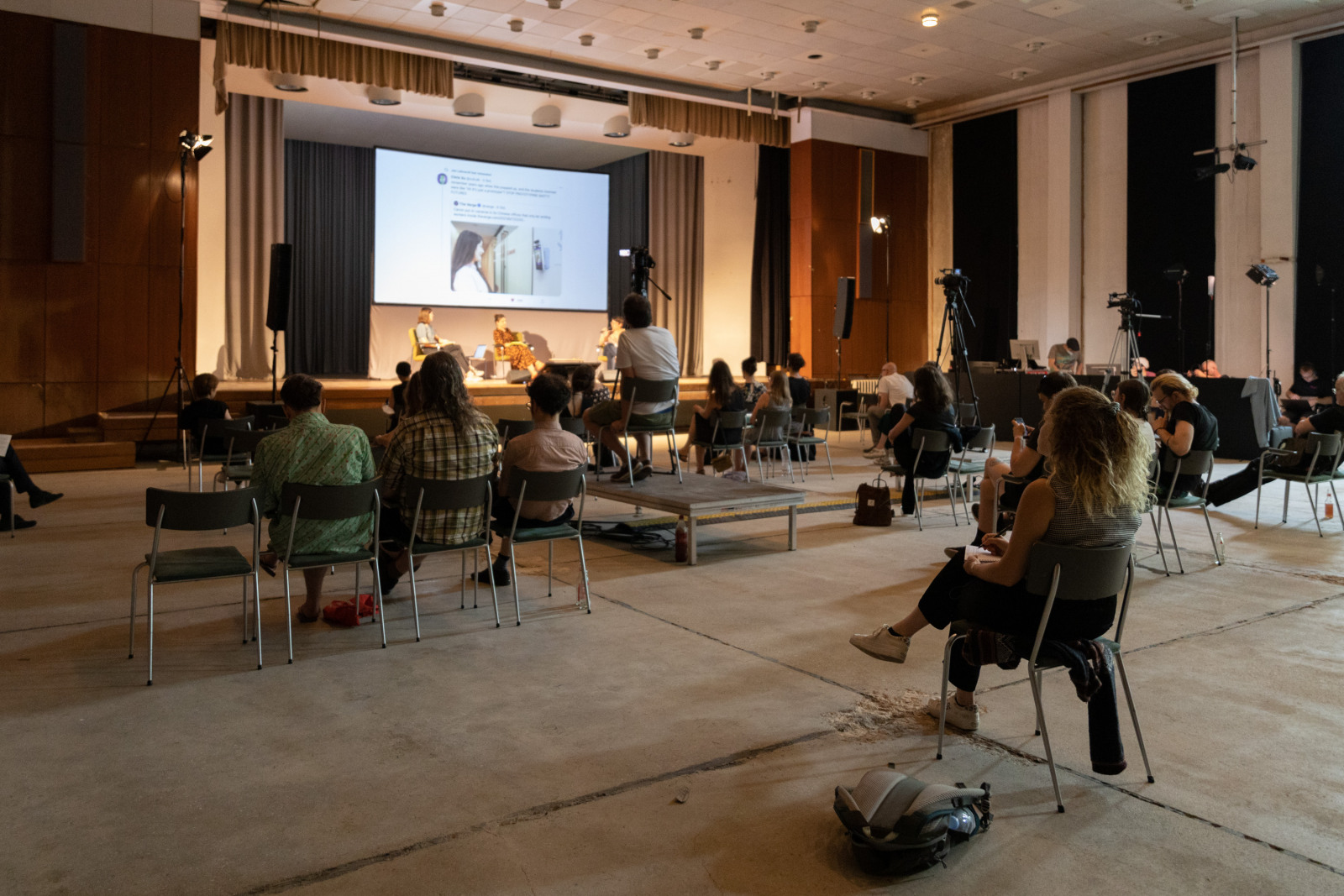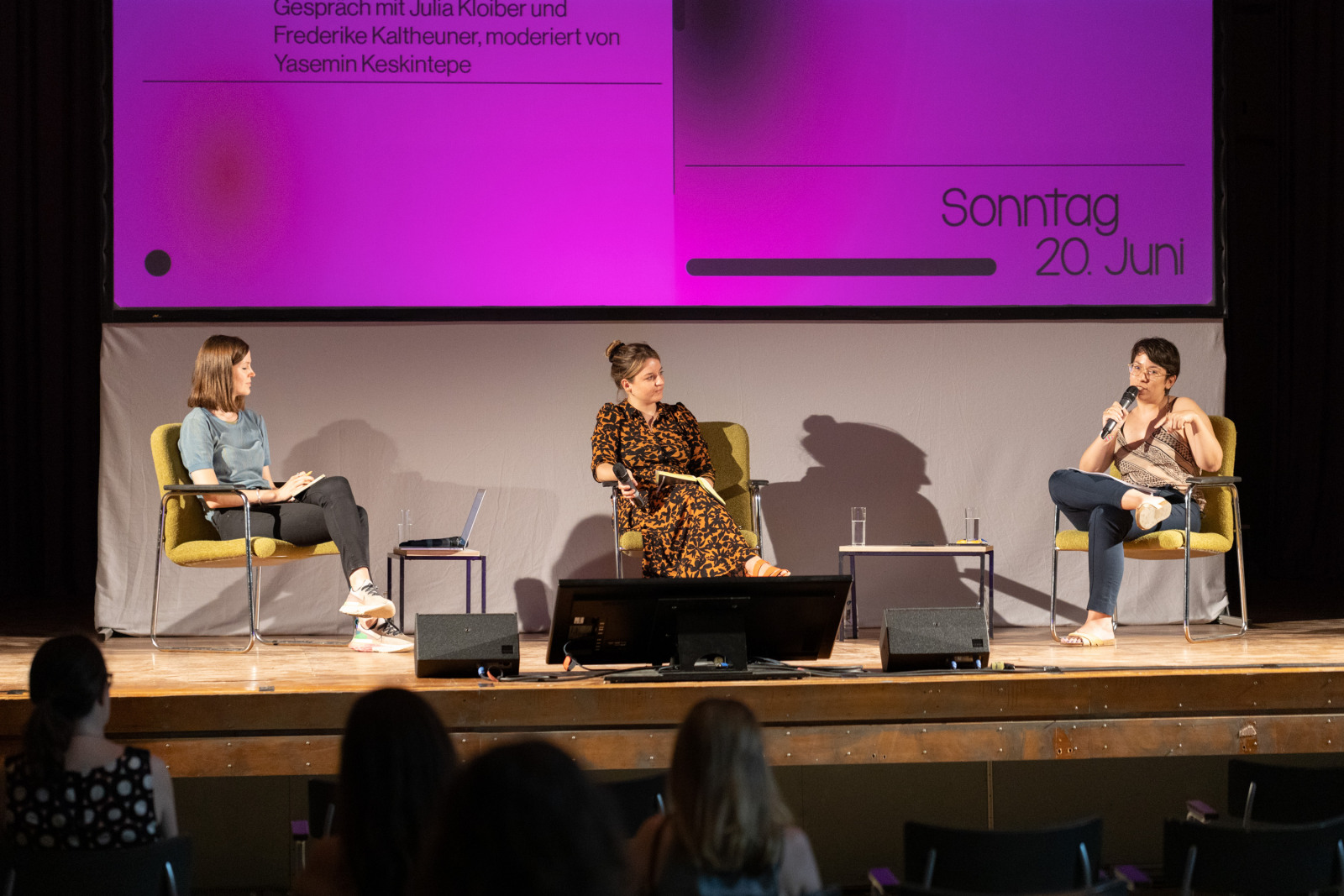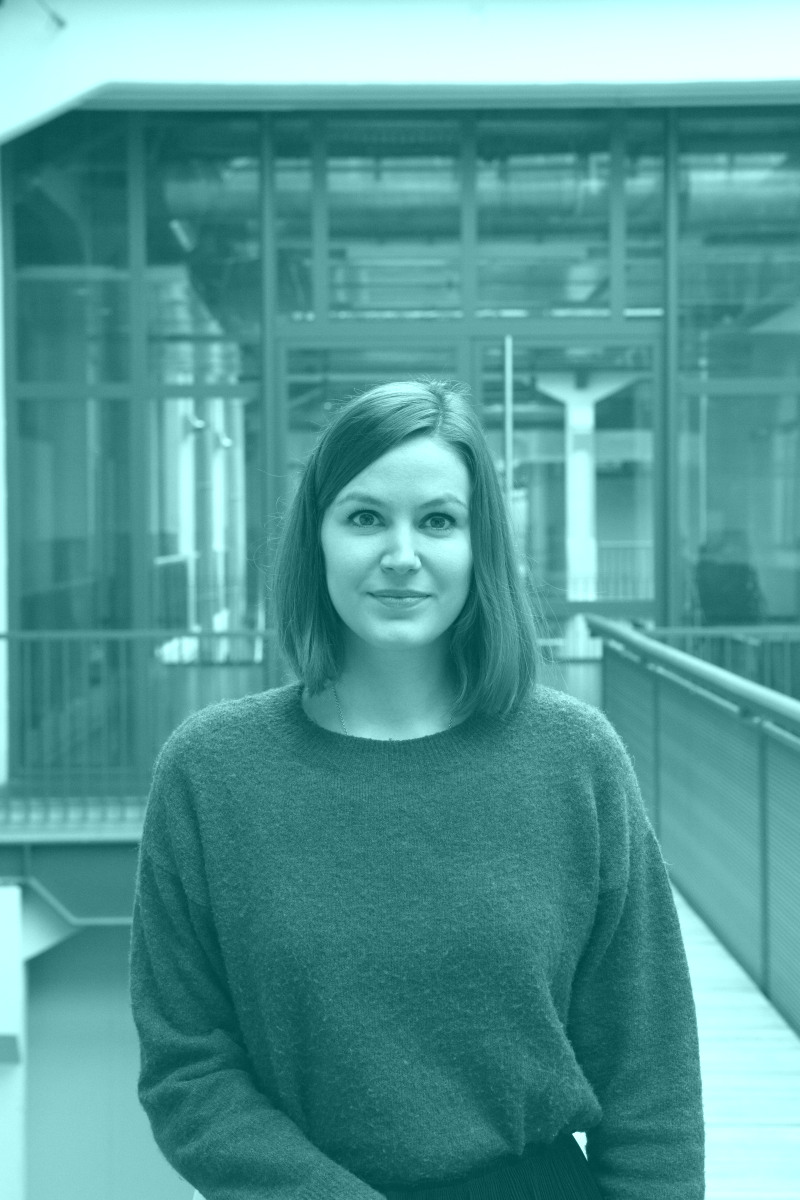Frederike Kaltheuner is a tech policy analyst, researcher and advocate for justice in a world made of data. From 2019-2020 she was a public-interest Tech Policy Fellow at the Mozilla Foundation. She also manages the European AI Fund, a philanthropic initiative to strengthen civil society in Europe. Previously she was Director of the Corporate Exploitation Programme at Privacy International. She advises governments, foundations and non-profits on emerging technologies, strategy, and tech policy.
Perspectives on AI bias, pseudoscience and promising alternatives



Conversation with Julia Kloiber (AT) and Frederike Kaltheuner (DE), moderated by Yasemin Keskintepe (DE)
In late February the European Commission published its much-anticipated white book on artificial intelligence (AI). The paper is considered to be the first transnational attempt to regulate AI and is part of the EU’s overall plan to shape the trajectory of digital technologies over the following decade. This attempt by Europe to regulate technology can be assessed as a combination of business-friendly surveillance capitalism and authoritarian state control.
The use of big data und machine learning harbours the promise of more accurate, unbiased future predictions than human beings on their own can ever be capable of. Yet because existing data sets are always utilised, these calculations are in reality extrapolations of the past and serve to reproduce prejudices embedded in the data. This, in turn, raises ethical and moral dilemmas. As mirrors of our society, algorithms show the status quo, reinforce errors and are subject to targeted influences – for the good and for the bad. Besides the limitations, injustices and oracle-like nature of these technologies, there are also questions about the nature of the opportunities and possibilities they offer. As a result, they challenge us to imagine what a world made of data might look like and to formulate a vision of the world we want to live in.
This session brings together Julia Kloiber – co-founder of Superrr Lab, a visionary feminist organisation and network for the research of the potential of new technologies for a pluralistic society – and Frederike Kaltheuner – tech policy analyst, researcher and advocate for justice in a world made of data – to talk about all these issues.

Julia Kloiber is the managing director and co-founder of the feminist non-profit Superrr Lab. She has launched a number of initiatives and organisations with a focus on public interest tech and digital public infrastructure. Among them are the Prototype Fund, a public open source fund and the initiative DigitaleZivilgesellschaft.org. From 2018-2019 she was a Fellow at the Mozilla Foundation. Julia is on the Advisory Board of Wikimedia Offene Wissenschaft, Digital Service 4 Germany and the Postcode Lottery Germany. In her current work, she explores just and equal digital futures.

Yasemin Keskintepe is an art historian and curator. She is currently in the process of curating the special exhibition Künstliche Intelligenz. Maschinen Lernen Menschheitsträume [Artificial Intelligence. Machine Learning Human Dreams] at the Deutsches Hygiene-Museum in Dresden. She previously worked at ZKM | Center for Art and Media Karlsruhe (2016 - 2018), where she co-curated the exhibition Open Codes. Digital Culture Techniques . Other projects include the 2018 version of the Impakt Festival Algorithmic Superstructures in Utrecht and Non-Aligned Networks (2019) at Valetta Contemporary in Malta.


